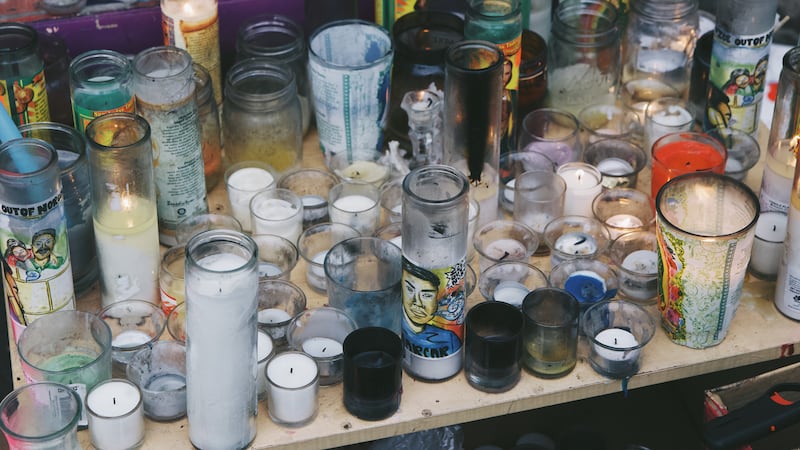Oregon's top federal defender had to halt interviews with detained immigrants locked in federal prison in Sheridan this week due to a scabies outbreak that she says demonstrates the very thing she is investigating: whether conditions at the prison are unconstitutional.
When the U.S. Bureau of Prisons announced that 123 asylum seekers would be imprisoned at the Sheridan Corrections Institute, federal public defender Lisa Hay launched an immediate investigation into whether the detainees would be held in conditions that are allowed under the law.
Hay said her office had so far met with 66 men and had plans to meet with 29 more on Wednesday. But officials with the federal Bureau of Prisons cancelled that visit, she said, because of a scabies outbreak within the population of immigrant detainees.
Hay said the maddeningly itchy condition—caused by a tiny mite that burrows into the skin—had spread because of the packed conditions the immigrants had been forced into.
The Bureau of Prisons confirmed to WW on Friday that staff had found 11 cases of scabies among detainees.
Hay said the conditions are taking a toll on the men.
"They are confused about why they are in prison and why they are prisoners," Hay said. "After we meet them, they have to go through strip searches, which is the norm for prison but these people don't need that."
On Friday morning, immigration lawyers and the American Civil Liberties Union of Oregon sued Homeland Security Secretary Kirstjen Nielsen, Attorney General Jeff Sessions and other officials, claiming the prison had illegally barred them from meeting with the detainees at Sheridan.
Hay's office is not legally eligible to represent the men in their immigration cases. Her investigation is limited to the legality of the conditions under which the men are being held.
And the lawsuit filed Friday only addresses one component of the rights the men should have under the law. Hay's concerns include unsanitary conditions caused by overcrowding and overly restrictive confinement, given that there men may not have been charged with any crime.
"If the punitive nature of their confinement exceeds what due process might allow for civil detainees seeking asylum then we might file a habeas corpus petition," Hay said.
Late on Friday, Hay did just that.
She filed a petition in federal court asking a judge to release Santos Osortos-Chicos, because the 27-year-old Honduran citizen hasn't been allowed to see an immigration lawyer during his three weeks at Sheridan. The Oregonian first reported her petition.
Hay said on Saturday that her investigation is ongoing. Osortos-Chicos' case had to be filed right away, she said, because there was an immediate need to reconnect him with his family.
Friday's lawsuits were the latest step for legal advocates who say they have jumped through every hoop ICE and the Bureau of Prisons have set up, and still can't see their clients.
At least five times, officials with the Bureau of Prisons at Sheridan have turned away immigration lawyers who were trying to provide free services to detainees who had requested it.
Only one of 123 men transferred to Sheridan by ICE has seen a lawyer who can represent him in his immigration case. Ten more were able to see lawyers because they are Mexican citizens. A delegation from the Mexican consulate in Portland was able to wrangle a meeting last Thursday under the Vienna Conventions on Consular Relations. Consular officials brought an immigration lawyer along when they visited the prison. Among those ten men, five initially told consular officials they didn't know where their families were, but the consulate helped find them. None had children who had been separated from their families at the border, according to officials at the consulate.
For the remaining 110 men, it's not clear when they will have access to legal advice.
Officials at Sheridan had only 27 hours to prepare enough space for the original 123 extra inmates, according to ACLU of Oregon Legal Director Mat dos Santos. As a result, the men are crammed three to a cell for 22 to 23 hours per day, for over three weeks now, Hay said.
ICE spokeswoman Carissa Cutrell told WW that the men would be moved on Friday from two housing units that they share with Sheridan inmates into a detainee-only housing unit. That would allow the prison to "enhance access to recreation time," Cutrell said in an email.
Cutrell said the men were not confined to their cells for as long as Hay said they were, but Cutrell didn't provide any alternate numbers.
The men are from 16 countries and speak 13 languages. Hay said access to interpreters was a sticking point. For some of the men, her office had to guess what language they might speak, based on their country of origin. Those men may not have spoken to anyone at all in their three weeks at Sheridan, Hay said.
Dos Santos said the problems were caused by a clash between two federal agencies that have never operated in concert and had just a handful of hours to hash out how to do so.
"They created a situation where people have different legal rights and should have different levels of access," dos Santos said. "It is not okay to simply say 'oops we just need to figure this out,' that a problem of ICE's own making somehow alleviates them from having to follow their own guidelines for complying with constitutional requirements. It is an incredibly messy situation and a situation that ICE itself created when it decided to move over 120 detainees to a federal prison that was in no way set up to handle them."
